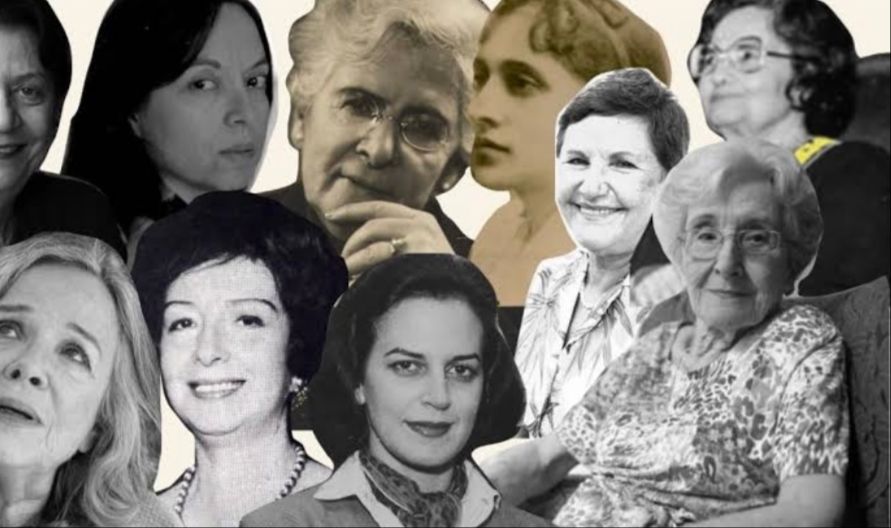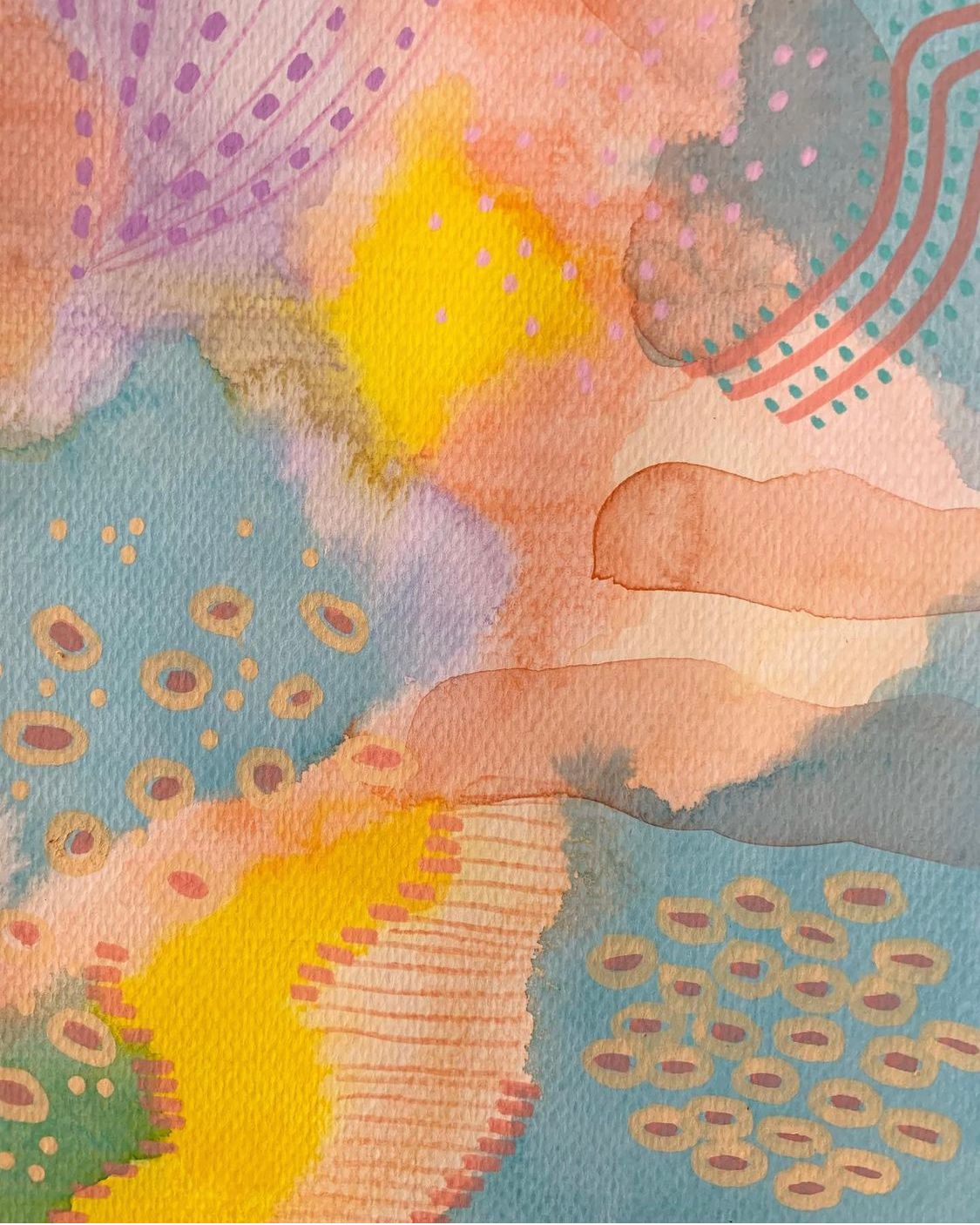Reading Elena Ferrante's latest book, The margins and the saying, about the pleasures of reading and writing , I found many things that I think about and that I have tried/try to write about. The book brings together three conferences and an essay by the author about her reading and writing path. I highlight here the first conference, entitled "The pen and the pen", as it was the one that talked to me the most.
In it, Ferrante talks about the "eagerness to write" and two types of writing, one acquiescent and the other impetuous. To do so, he rescues the girl who went to primary school, who needed to write within the margins of the notebooks of that time. In a similar way to a sheet of foolscap paper, there were two vertical red lines, one on the left and one on the right, and horizontal black lines. It was necessary to respect the margins and not exceed them – a task that almost everyone was faced with – at the risk of some punishment.
Ferrante then tells how this training influenced her way of writing, creating an ambivalence in her. While I felt the satisfaction of writing within the margins, respecting the alignment, I also had a sense of loss when I was able to do so. She tells about her writing process, about how she started writing as a girl. He talks about the attention that should be given, in literature, to the "way in which we imagine dragging out, by means of the written word, a phantasmatic "inside", by its nature always elusive" (p. 19).
[I refer the reader to the text Writing in the margins , in which I talk about the gems that are found right on the margins.]
The author states:
(...) A surprising split occurs: the self of the one who wants to write separates itself from its own thought and, with this separation, sees that thought. It is not a fixed and defined image. The thought-vision shows itself as something in motion—it rises and lowers—and has the task of manifesting itself before it fades away. The verb is this, "to manifest oneself", which is significant, because it refers to an action that is carried out thanks to the hand. That which is before the eyes of the self — something mobile, therefore alive — must be "grasped with the hand" endowed with a pencil and transformed, on the piece of paper, into a written word . (...) The effort is due to the fact that the present—the whole present, even that of the writing self, one letter after another—cannot clearly retain the thought-vision, which always comes before, which is always the past, and which therefore tends to be overshadowed. I read those few lines, wrested irony from them, forced them, adapted them as I wanted. And he imagined a race against time, a race in which those who write always fall behind. In fact, while the letters lined up quickly one after the other, imposing themselves, the vision fled and the writing was always doomed to an uncomfortable approximation. Writing took too long to fix the brain wave. (p. 19-20).
For me, Ferrante manages to put into words the enigmatic process of transforming thought into writing. In the text My writing, weaving , I made an attempt to talk about this, talking about the speed of thought and the slowness of the hands – always late. And with the term "thought-vision", she seems to synthesize what I did not quite explain, when she said: "It is almost as if I see the word in a blurry way, or as if it echoes far within me and I cannot expel it.".
I live with the feeling that I miss many ideas by not writing them down at the exact moment they occur to me. Several times, I tried to always have a notebook with me to write down everything that came to mind, from quotes from books, phrases fished out in conversations, thoughts of mine. It never lasted long. In fact, the words are scattered in different supports, in my notebooks, in the notes on my cell phone, in the notes I insert into words on the Kindle in sleepless nights, in drafts I make in my text editor, in the margins of the books I scratch and scribble. And, to some extent, I find a translation of this in Ferrante's book. Obviously, the due proportions should be kept, since Ferrante is Ferrante and refers to the writing of novels, of fiction.

What I highlight is that a text that is found here was actually born absolutely fragmented. It is the result of a laborious activity of organization, of picking up scattered pieces, in different corners, and sewing them, aligning them. Or, to use Elena's words, put them within the margins.
Sometimes, when I finish a text and publish it here, I look at it ready and I also feel a kind of waste, in the sense that whoever is going to read it, will do so for a few minutes, sometimes 2, 3 minutes, without even imagining how much there is behind it, how much is present, absently, in its weaving. How many quotes I found along the way, tying them together, how many texts, books, words loose in the air, inspired me and brought me here. And how many thoughts were lost without finding the space to fit in the margins.
However, again, Elena Ferrante throws a flash with her words. I ask permission to transcribe another long excerpt.
For a good part of my life, I wrote slow pages with the only hope that they would be preliminary, that the moment would soon come for that unstoppable impulse, when the "I" that writes from your fragment of the brain, with a sudden movement, takes possession of all possible "I's", of the whole head, of the whole body. and empowered in this way, he begins to run, gathering into his network the world that serves him. These are beautiful moments. Something asks to become manifest, Svevo said, to be captured by the hand that writes. Something in me, an abject and vile woman, said Gaspara Stampa, wants to get out of the usual game and find inspiration and style. However, in my experience, this something easily avoids capture and gets lost. Of course, we can re-evoke it, we can even encapsulate it in a beautiful sentence, but the instant in which the object appeared and the next instant, in which you begin to write, must find a magical coordination that will unleash the joy of writing or we will have to settle for enthralling through words, waiting for a new and dazzling occasion that will find us more prepared. less flighty (p. 27-28).
The combination of these words, "unstoppable impulse", "beautiful moments", "magical coordination", "joy of writing", "new and dazzling occasion", indicates that, if there is something that is lost, if there is something wasteful, there is also a frisson, a sensation of making magic with thought and hands. And this, this enjoyment, is not made known by those who read a finished text, just as, in a theater show, the mystery is not revealed to the spectator, the delight of seeing and feeling a hard work, carried out behind the scenes, transformed, translated into something else - this one, yes, displayed to the eyes of the spectator. Pure delight kept and lived by those who write, act, direct.
It seems to me that the sensation that can come close to this is precisely that of finding in a show, in a book, a little (or a lot) of ourselves, just as I found myself in Ferrante's book. The experience of finding outside, in the work of other hands, something from within, something from oneself. An ecstasy that simultaneously stirs and appeases.






